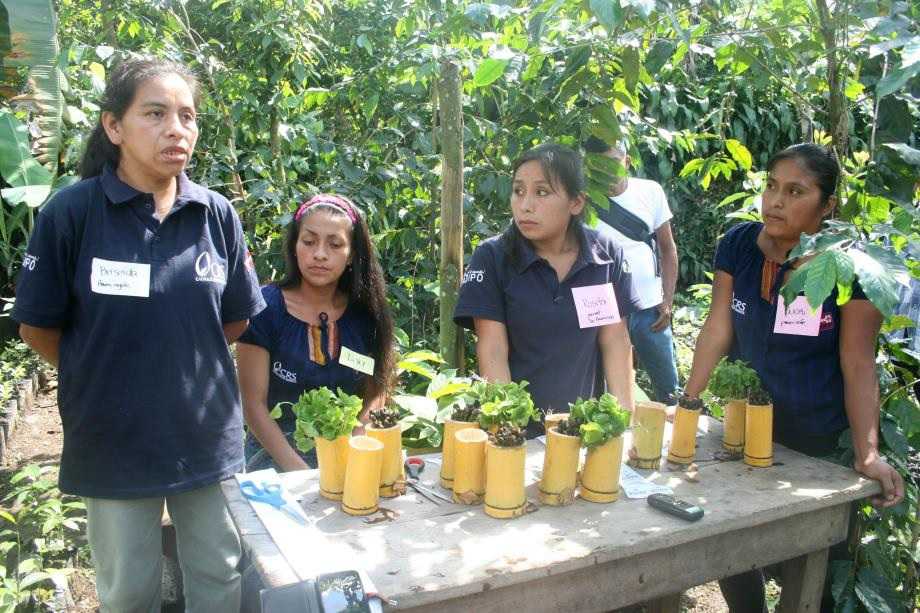“We sell coffee, save money with the saving group, and, from the money we get, we save our seed capital so we are not left without resources.” February 2018—In a small, rural community in the San Marcos department of northwestern Guatemala, Rosita Juárez has learned how to perform plant surgery.
With steady hands, she grafts a coffee plant root with the stem of a different variety that is less susceptible to diseases. The result is a productive, disease-resistant coffee seedling that will flourish in the region’s fertile, volcanic soil.
The seedling will also produce delicious coffee beans and help Juárez and her husband support their three boys through seasonal agricultural work in the coffee industry.
Guatemala is one of the main coffee producers in the world. The industry constitutes a large part of the country’s economy and employs an estimated 30 percent of the country’s rural workforce.
In early 2013, however, farmers started to notice orange spots on the green leaves of their coffee plants. The discoloration was an early sign of the outbreak of coffee rust, a damaging fungus that decreases the plants’ production of coffee beans.
Within a short time, the outbreak had destroyed 20 percent of the coffee crops in Central America, resulting in the loss of approximately 337,000 jobs and an estimated $460 million in income for coffeeproducing families across the region.
Coffee rust compounded losses from several consecutive years of drought and exacerbated food insecurity in Guatemala, which has the fourth-highest rate of chronic malnutrition in the world.
In San Marcos, the outbreak made it much harder for families like Juárez’s—who are dependent on the coffee industry for seasonal work— to access enough nutritious food.
In response, USAID partnered with Catholic Relief Services (CRS) to adapt an existing development program and boost access to livelihood opportunities and financial services, particularly for women, in communities most affected by the rust in San Marcos.
In collaboration with Guatemala’s National Association of Coffee Growers (ANACAFÉ), CRS trains women like Juárez to graft rust-resistant coffee seedlings to prevent crop failure and to better manage water, soil and other natural resources.
In addition to positive economic benefits, more female participation in coffee production has improved gender dynamics in the community. “Our work is recognized. [There is] no more discrimination against women,” Juárez reports.
With the training she received, Juárez has taken a leadership role in her local seedling production group.
The group is composed of 15 families from the community who combine resources to produce the rustresistant seedlings, which they plant on their own farms or sell to other coffee farmers in the region.
Since 2015, Juárez’s group has produced 45,000 seedlings, half of which were sold to other members of the community.
The training program also provides participants with access to communitymanaged financial services, including savings groups that offer families small loans. “We sell coffee, save money with the saving group, and, from the money we get, we save our seed capital so we are not left without resources,” Juárez says.
With USAID’s assistance, families in Guatemala are not only increasing their own incomes, but they are rehabilitating an industry critical to the entire region.


















